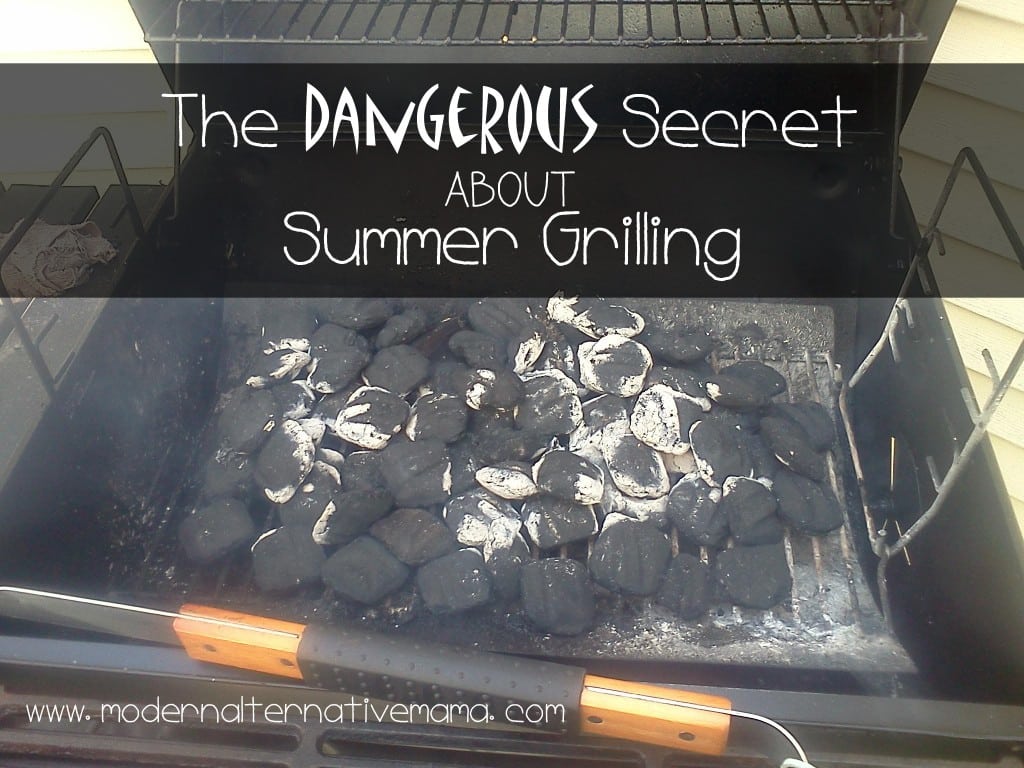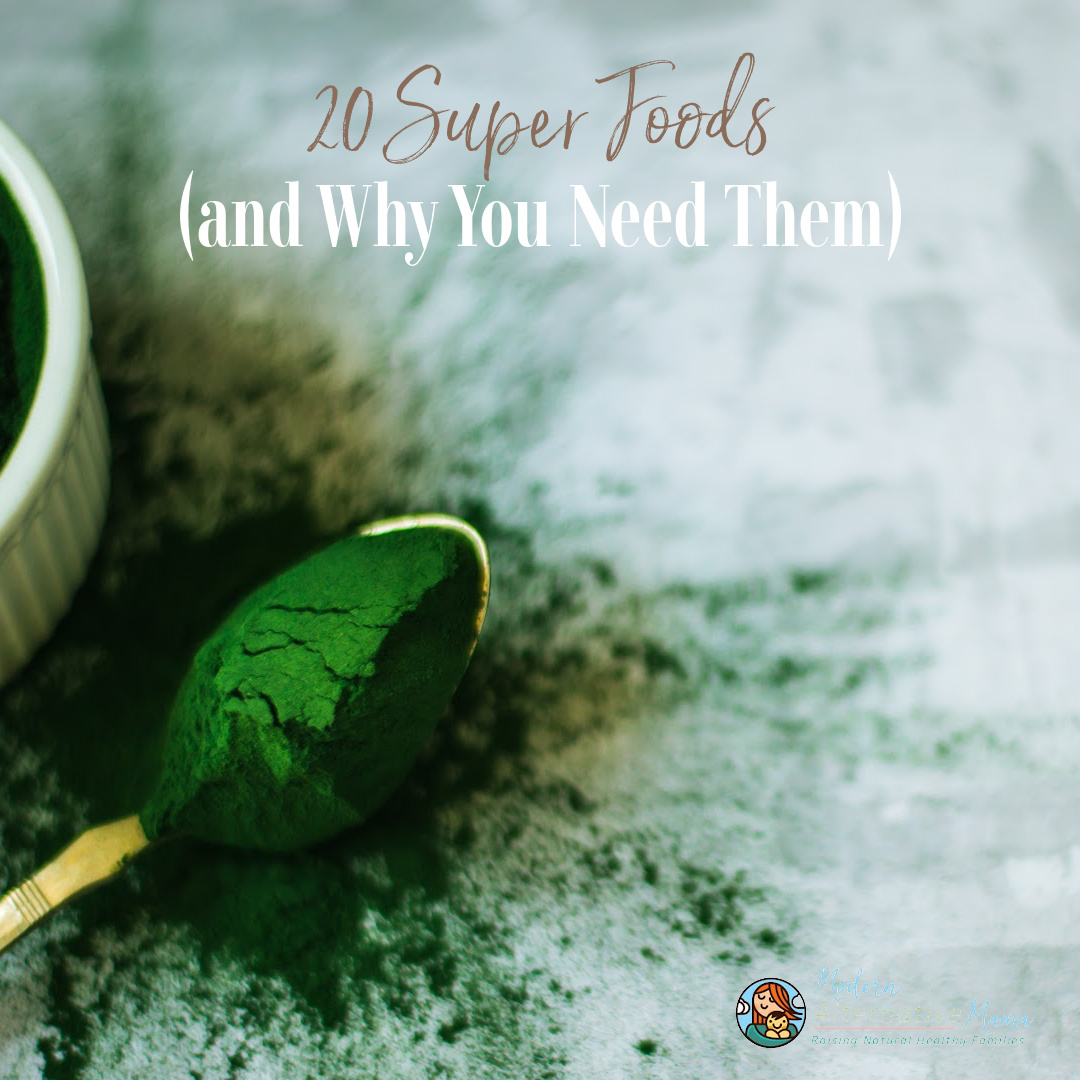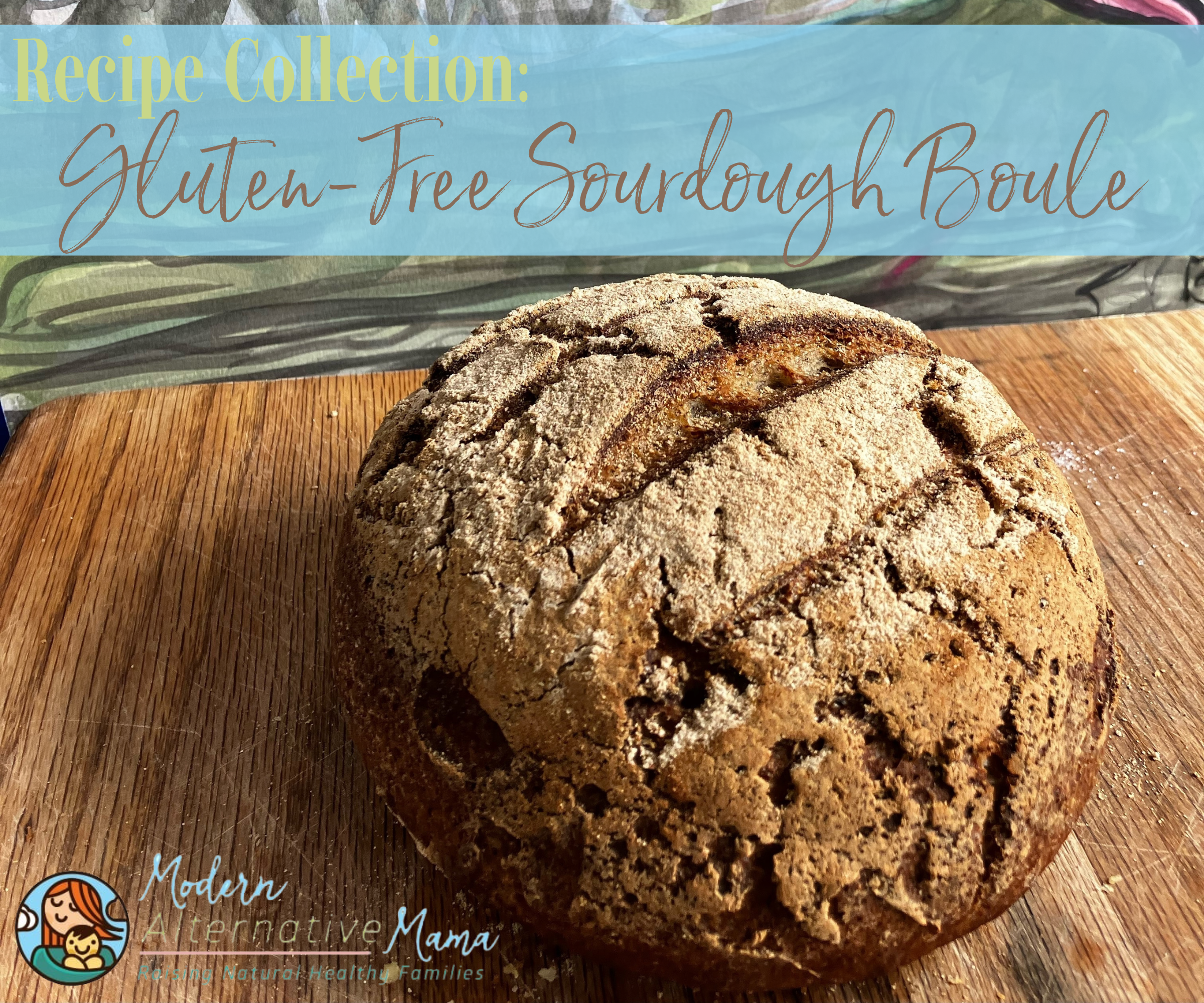Think your summer cookout is safe? Here’s a look at potential health hazards caused by grilling food, and how to avoid them.
By Jaclyn of The Family That Heals Together
My Favorite Summer Dinner
As a family, my husband, kids and I love to make a team effort out of dinner, with the guys grilling outside and momma making the sides in the kitchen. I love to include a tall glass of this yummy lacto-fermented strawberry lemonade and finish dinner off with one of my favorite paleo cake recipes. Grilling out is one of our favorite summer pastimes, whether we’re indulging in a juicy, grass-fed steak or chowing down on some kid-friendly free-range chicken legs. But a few years ago, I learned that grilling can be dangerous, and I’m not talking about a burn hazard.
The Dangerous Secret
Grilling is accepted as a healthier way to cook foods, especially if you follow mainstream health advice, which demonizes fried foods (I personally love anything fried or sautéed in butter!). However, there is a dangerous secret lurking in this method that mainstream doesn’t typically take into consideration: grilling produces carcinogens or cancer-causing agents!
Sally Fallon writes in her book Nourishing Traditions: “Charcoal-grilled meats and smoked foods contain chemicals called polycyclic aromatic hydrocarbons (PAHs) that are used to induce cancer in laboratory animals, yet our ancestors ate liberally of smoked meats and fish without suffering from high levels of cancer. There are probably factors in traditional diets that protect against these carcinogens. Modern man is best advised to eat smoked and barbecued meats sparingly.” (pg. 32)
Laboratory results have shown that meats cooked at high temperatures contain other potential mutagens in the form of heterocyclic amines (HCAs). HCAs, in combination with PAHs, have been shown by studies to cause cancer in lab animals. It is unknown at what levels these substances might cause cancer in humans.
The amount of HCAs and PAHs accumulated in grilled food varies according to the type of meat as well as how long it is grilled for. All meats, however, cooked at temperatures above 300ºF, form HCAs. Well done, grilled, or barbecued chicken and steak all have high concentrations of HCAs. Additionally, exposing meat to smoke or charring contributes to PAH formation.
How To Protect Yourself
- As I mentioned above, eat smoked and barbecued meats sparingly. Grilling may be one of those areas where moderation is key. Eating foods cooked at high temperatures and that tend to get charred should be done occasionally, not every day.
- Marinate your meat before grilling. According to a study conducted by researchers from Kansas State University and The Food Science Institute,
meats marinated in an oil, water, vinegar and spice/herb mixture for one hour before grilling showed as much as an 88% decrease in HCA content.
- Use healthier charcoals, such as this natural hardwood lump charcoal or this coconut shell charcoal, both of which are less processed and will not impart the chemicals to your food that conventional charcoal contains, such as petroleum. These are also better for the environment.
- Eat a clean diet free of processed foods, especially sugar. The cleaner your diet, the more able your body is to fight off toxins and filter out carcinogens. When you eat a clean diet, you support your immune and other systems of the body that work to eliminate toxins.
Do I Still Use The Grill?
Let’s be honest, I’m not ready to give up one of my favorite pastimes anytime soon. I love grilling out and enjoying food on the patio with my family. There’s something that’s just so awesome about this summer tradition! I simply make it as healthy as I can by never using conventional charcoal, only grilling out once a week or less, using only healthy meats (avoiding conventional meats like nitrate-containing hot dogs), and eating a very healthy diet all around to allow my body to continually get rid of toxins.
So, in the spirit of moderation, here are a few {healthy} grilling links you might enjoy! Go fire up that hardwood or coconut charcoal and get to grilling!
Check out this yummy recipe for Grassfed Beef and Bacon Burgers from This House of Joy.
Learn How To Grill A Perfect Steak Every Time from Whole Lifestyle Nutrition.
Try these amazing-looking Rosemary Grilled Lamb Chops from Cheeseslave.
Don’t forget a good Barbecue Sauce, like this recipe from right here at Modern Alternative Mama!
Do you grill meat in the summer? Are you worried about carcinogens?
Sources:
Fallon, Sally, Nourishing Traditions, 1999
Smoth JS, Ameri F, and Gagdil P, Effect of marinades on the formation of heterocyclic amines in grilled beef steaks, 2008
Cross AJ, Sinha R, Meat-related mutagens/carcinogens in the etiology of colorectal cancer, 2004
Jägerstad M, Skog K. Genotoxicity of heat-processed foods, 2005
SaveSave
SaveSave








Thanks for sharing my beef and bacon burger recipe!! I’m not ready to give up my BBQ yet, but we only do it about once a weak(isn)! I helps that I don’t BBQ…my husband is in charge of that area and he only has time on weekends 🙂
What about using a propane grill?
Research indicates that foods grilled with propane do develop less of these cacogens. I’m not sure what the other health considerations of grilling with propane might be.
I would be curious what kind of difference there is if it is cooked over good old fashioned wood coals …this summer my husband has cooked pork steaks over wood coals from a branch that came down out of our maple tree a couple of years ago, talk about delicious. 🙂
I think certainly that is a much healthier option over the commercially available charcoal made by industrialized methods. According to my research, muscle meats cooked at high temperatures develop these carcinogens regardless, but in my opinion, when you are grilling, choosing a healthier charcoal is the way to go!
Thank you for sharing.